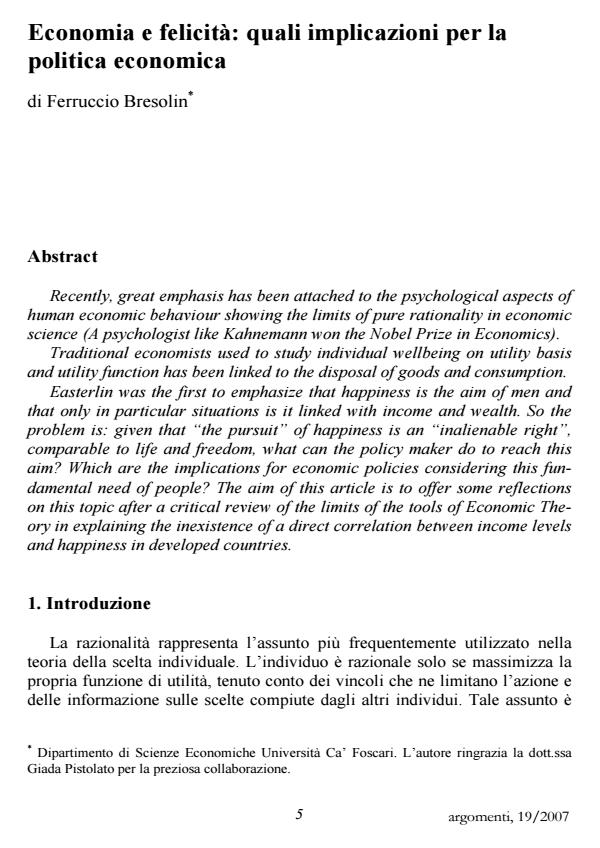Economia e felicità: quali implicazioni per la politica economica
Titolo Rivista ARGOMENTI
Autori/Curatori Ferruccio Bresolin
Anno di pubblicazione 2007 Fascicolo 2007/19
Lingua Italiano Numero pagine 23 P. 5-27 Dimensione file 104 KB
DOI
Il DOI è il codice a barre della proprietà intellettuale: per saperne di più
clicca qui
Qui sotto puoi vedere in anteprima la prima pagina di questo articolo.
Se questo articolo ti interessa, lo puoi acquistare (e scaricare in formato pdf) seguendo le facili indicazioni per acquistare il download credit. Acquista Download Credits per scaricare questo Articolo in formato PDF

FrancoAngeli è membro della Publishers International Linking Association, Inc (PILA)associazione indipendente e non profit per facilitare (attraverso i servizi tecnologici implementati da CrossRef.org) l’accesso degli studiosi ai contenuti digitali nelle pubblicazioni professionali e scientifiche
Recently, great emphasis has been attached to the psychological aspects of human economic behaviour showing the limits of pure rationality in economic science (A psychologist like Kahnemann won the Nobel Prize in Economics). Traditional economists used to study individual wellbeing on utility basis and utility function has been linked to the disposal of goods and consumption. Easterlin was the first to emphasize that happiness is the aim of men and that only in particular situations is it linked with income and wealth. So the problem is: given that the pursuit of happiness is an inalienable right, comparable to life and freedom, what can the policy maker do to reach this aim? Which are the implications for economic policies considering this fundamental need of people? The aim of this article is to offer some reflections on this topic after a critical review of the limits of the tools of Economic Theory in explaining the inexistence of a direct correlation between income levels and happiness in developed countries.
Ferruccio Bresolin, Economia e felicità: quali implicazioni per la politica economica in "ARGOMENTI" 19/2007, pp 5-27, DOI: